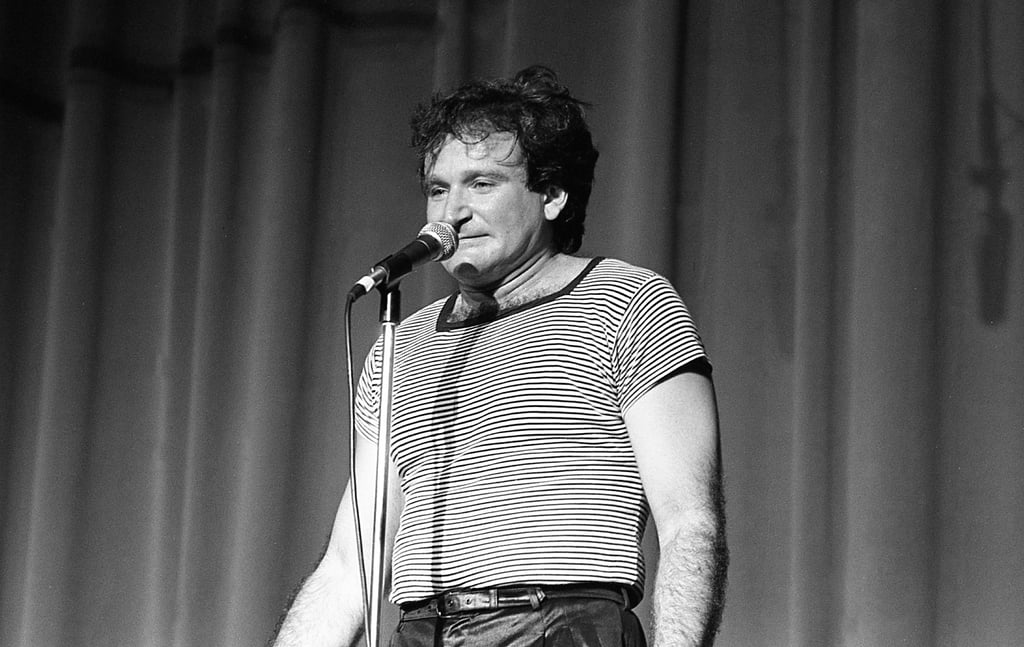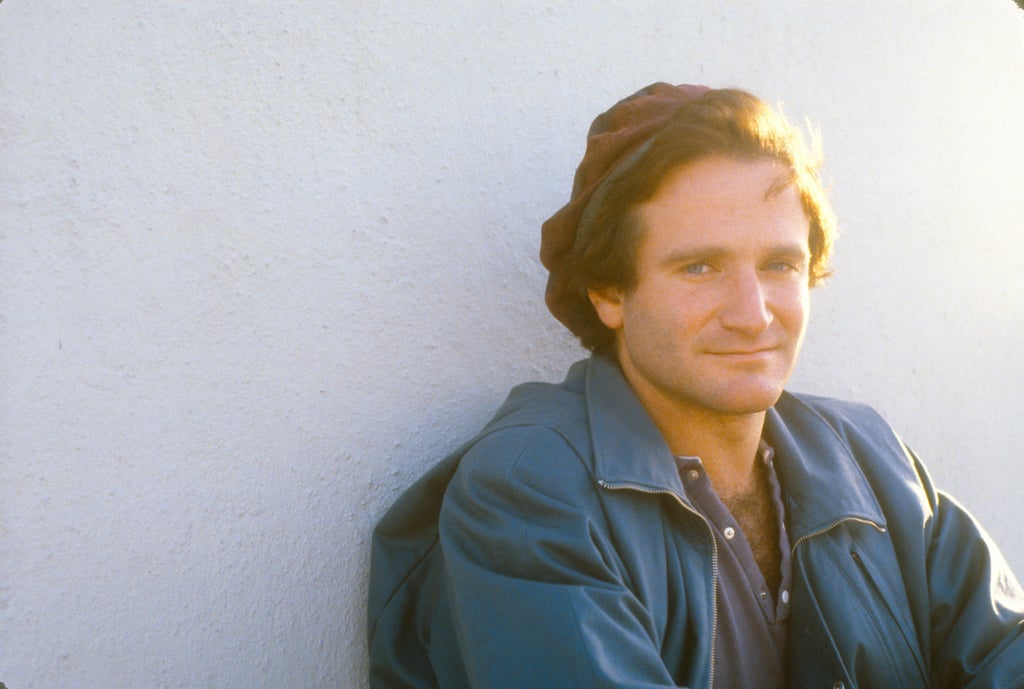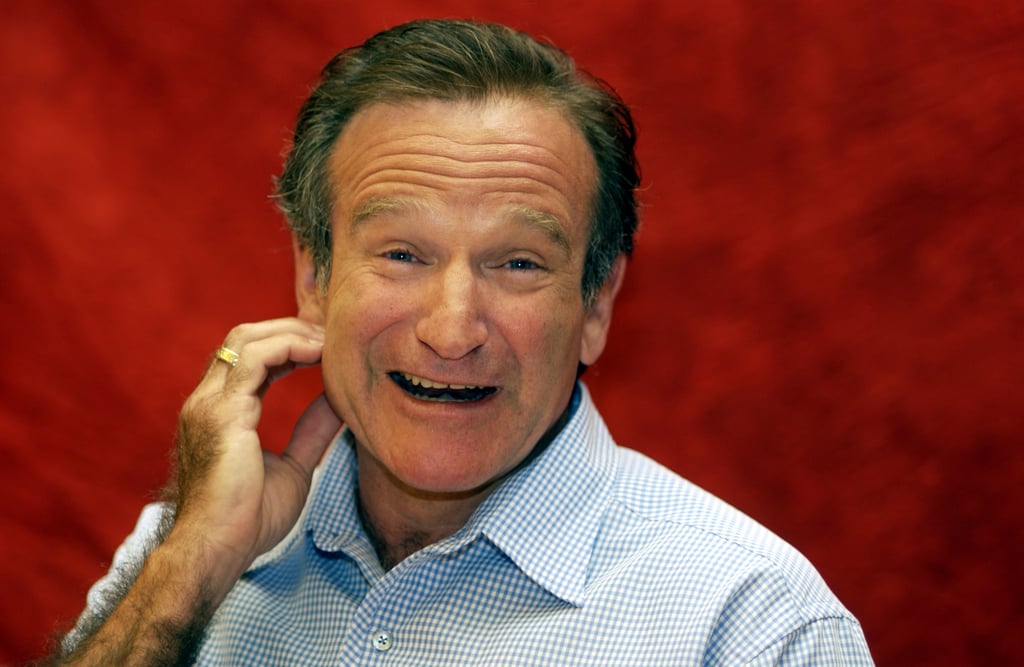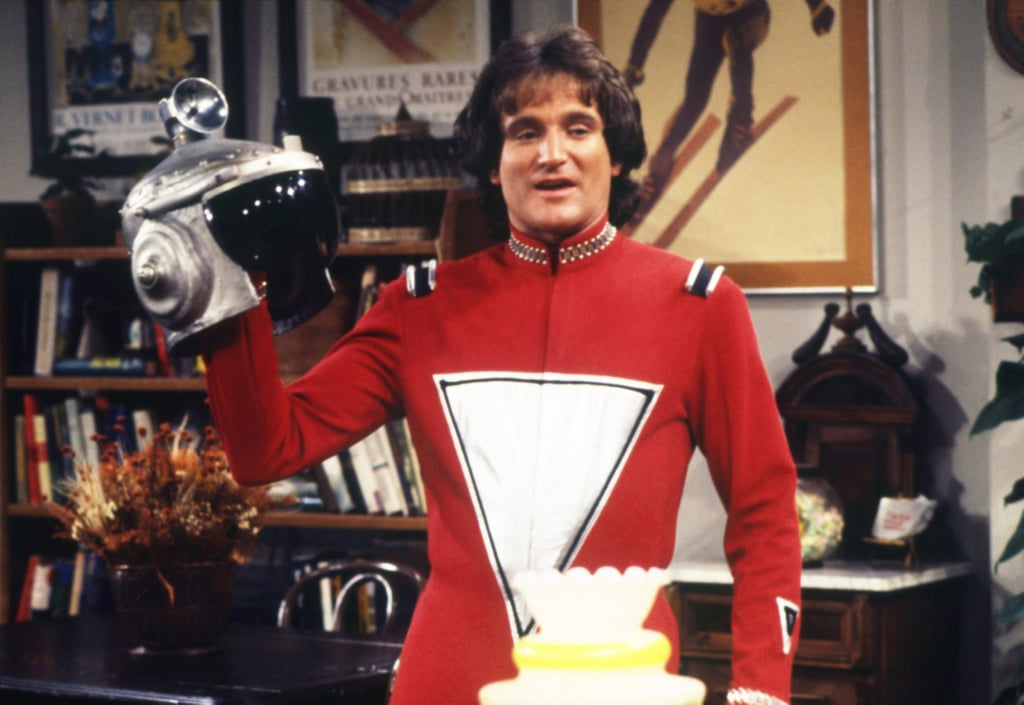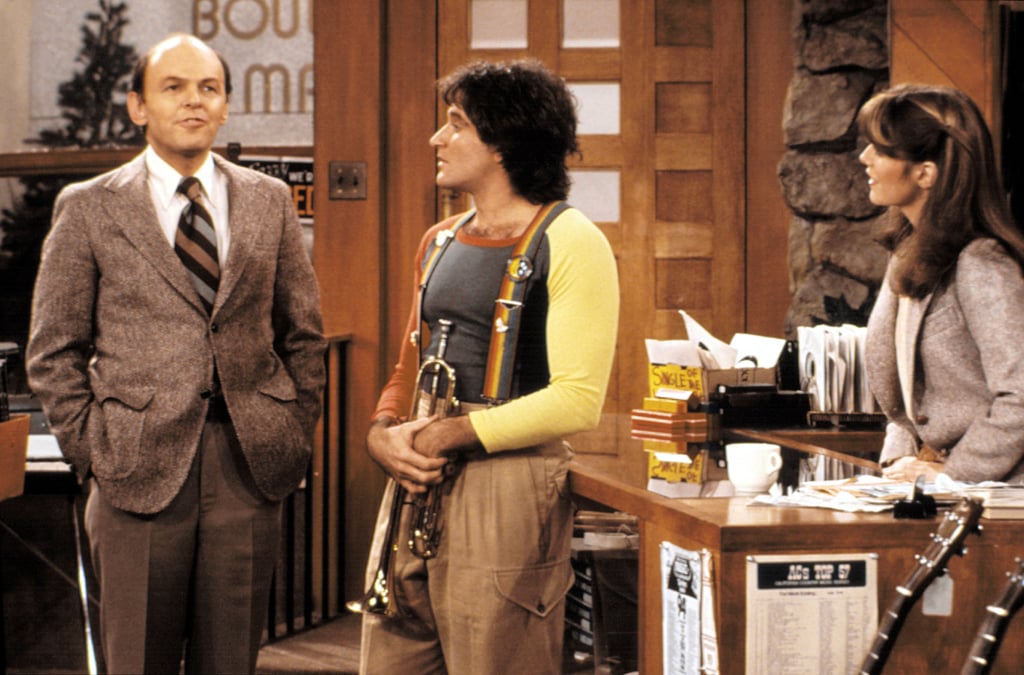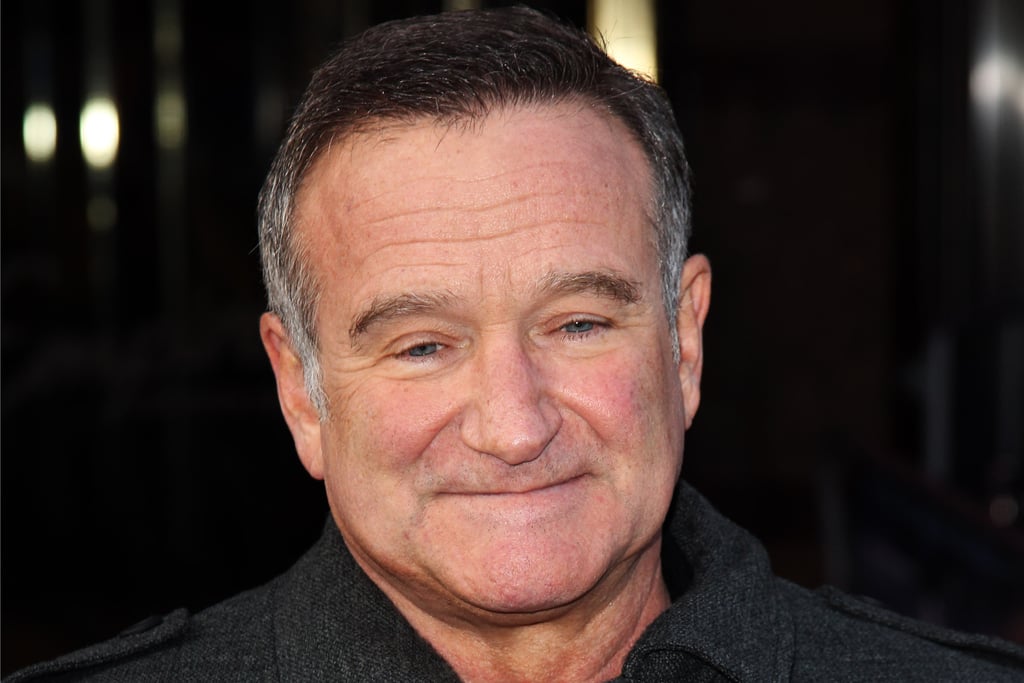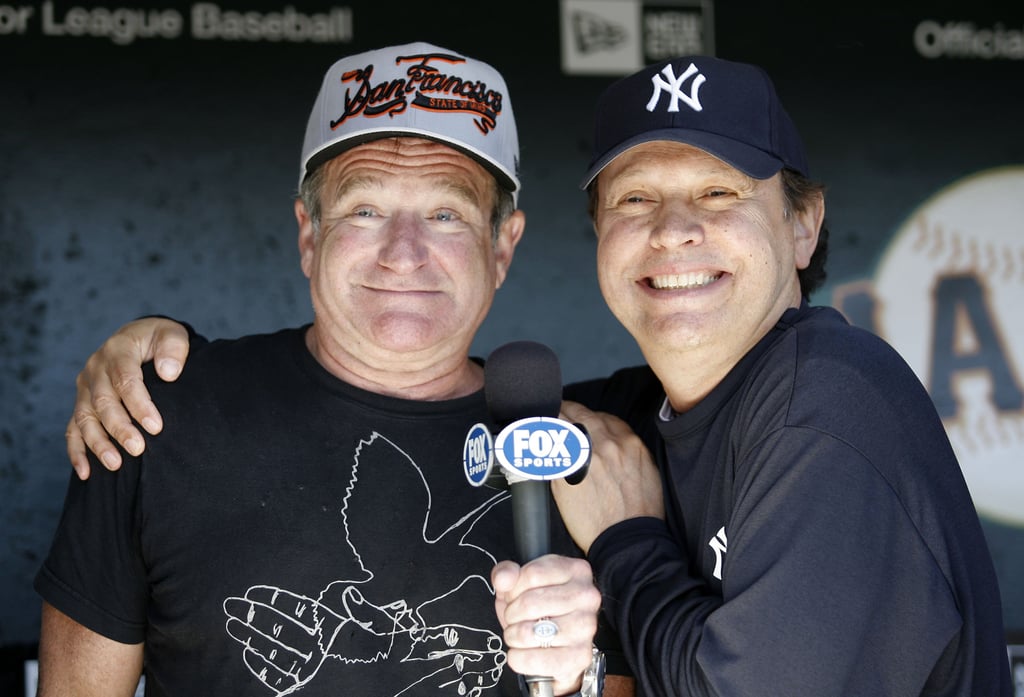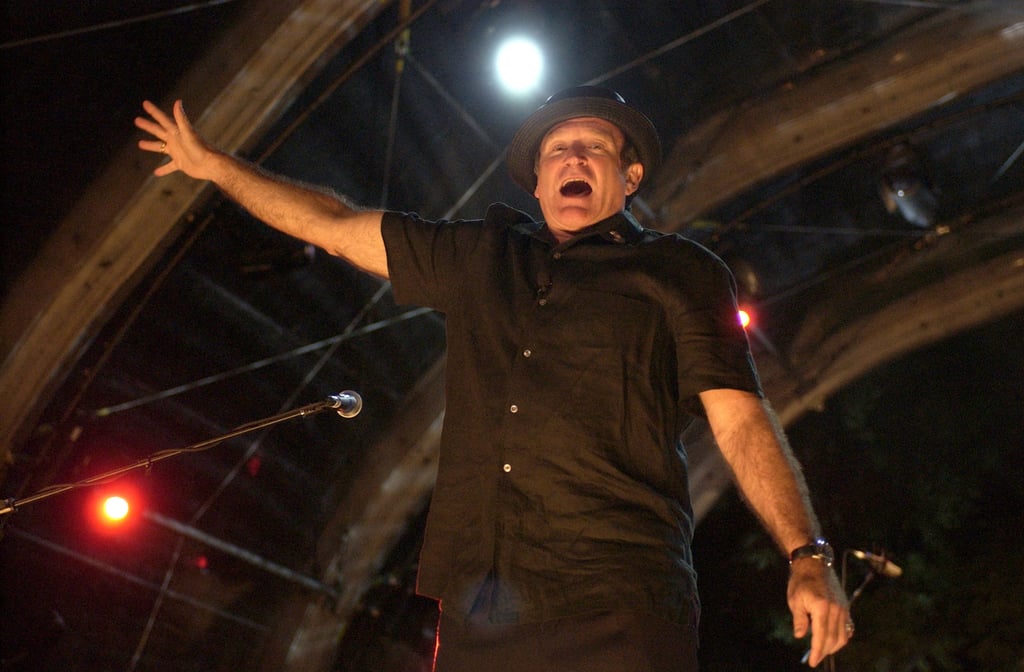On Monday night, HBO premiered a documentary that gives an intimate look at the life and legacy of comedian Robin Williams [1]. The two-hour film explores the actor's wondrous, frenetic mind and tries to solve the puzzle behind the magic of his comedy.
Using archival footage, clips from his stand-up specials, and old audio tapes, director Marina Zenovich takes us beyond the brilliance of Williams's art and reveals the quiet, sensitive man behind it all. Alongside interviews with Williams's nearest and dearest, Zenovich's work culminates in a heartwarming, painful, and honest documentary that viewers really responded to and appreciated [2]. The documentary's title, Come Inside My Mind, actually comes from a joke Williams told in 1979 about his experience having a brain that never stops working. Fellow comedian David Letterman [3] reflects on Williams's almost manic-like stage presence in the film, saying, "We knew whatever it was Robin was doing, we weren't going to get close to that," he said. "All we had was our stupid little jokes." It was that rapid run-through of jokes, impressions, and character accents that caught the attention of his audience and kept us laughing throughout the entirety of his career.
If you haven't already bawled your eyes out over Come Inside My Mind on HBO [4], here are some of the most interesting anecdotes uncovered from the documentary.
He got his start at a comedy workshop inside a church.
Williams first performed comedy in front of an audience during a high school presentation, where he was giving an onstage impersonation of one of his history teachers. Once he heard the laughter from his peers and teachers, he was properly hooked. He went on to study at Juilliard under British-American actor and producer John Houseman. Williams left Juilliard during his junior year and moved with his family to Marin County in San Francisco. During his search for steady work, he found a comedy workshop in a church and began to build his act. The documentary reveals that he later began performing in comedy clubs between bartending shifts and started making his mark from there.
Comedy was like another addiction to him.
Williams was known for being a hard partier during the late 1970s and early 1980s and developed an addiction to cocaine. According to the documentary, it was the death of friend John Belushi in 1982 (and the birth of his son, Zachary) that led to him quitting drugs and alcohol. However, many of those interviewed allude to comedy being another addiction that Williams couldn't shake. During a clip of Williams doing improv in class at Juilliard, the comedian says it was "like sex, only without the guilt."
Williams's close friend, comedian Billy Crystal, confirmed that he needed that attention from his audience. "That laugh is a drug. That acceptance. That thrill is really hard to replace with anything else," Crystal said. Williams's son agrees. "His pathos was to entertain and to please," Zachary says in the documentary. "And he felt that when he wasn't doing that, he was not succeeding as a person. That was always hard to see, because in so many senses, he was the most successful person I know. And yet he didn't always feel that."
Williams began telling jokes to impress his parents and was inspired by legendary comedian Jonathan Winters.
Williams grew up in a very reserved household. He was an only child with step-siblings that weren't particularly close to one another and was primarily raised by nannies. However, Williams found that telling jokes was a way to catch the interest of both his mother and father. While he got his sense of humour from his mother — and often used it to gain her attention — it wasn't until he saw his father watching The Tonight Show that he made a similar connection. "I saw my father watching The Tonight Show with Jonathan Winters," he recounts. "My dad was a sweet man but not an easy laugh. My dad lost it, and I went, 'Who is this guy who made the great white father laugh?'"
He got his big break thanks to Scott Marshall and Star Wars.
One of the most charming parts of the documentary is the retelling of how Williams became the coheadliner of Mork & Mindy in the late '70s. According to Scott Marshall, son of Happy Days and Mork & Mindy creator Garry Marshall, it all began with the release of Star Wars.
"In 1977, Star Wars [A New Hope] came out, and I stopped watching Happy Days," explains Marshall. "My dad said, 'Why don't you want to watch Happy Days anymore?' I said, 'There's no spacemen on it.' He went to the writers' room and said, 'Scotty wants a spaceman.'"
It was Marshall's aunt who led them to Williams for the role of Mork, the spaceman from Ork. "My aunt, who was in charge of casting, told my dad about a comedian doing stand-up on the street corner with a hat that people put money in," Marshall continues. "My dad said, 'You want me to hire a kid who stands on the street corner with a hat, on a primetime network television show? A hit show?' She said, 'It's a pretty full hat.'" Williams's Mork apparently tested so well with audiences during his appearance on Happy Days that he was given a spinoff, Mork & Mindy. The show would go on to last four seasons.
He changed the way sitcoms are shot.
During the early days of shooting for Mork & Mindy (and all sitcoms that were shot before a live studio audience), there were usually three cameramen situated around the stage. However, Williams's improv-driven and unpredictable performance as Mork would lead to a lot of misses by the cameramen. "He would run around the stage — you know, run around and do crazy things all the time," Marshall explains. "He would do something great and my dad would go, 'Did you get that? Did you get that?' The cameraman said, 'He didn't come by here.' [My dad would say,] 'You gotta capture this, he's a genius!' And the cameraman said, 'If he's such a genius, he would hit his mark.'"
In the hopes of capturing the genius that was Williams in his element, a fourth cameraman was hired just to follow him. Soon after, four cameras became the TV sitcom standard.
He relapsed after about 20 years of sobriety.
As mentioned, Williams struggled with addictions to cocaine and alcohol. He quit in 1982, and though he was adamant that he never went back to using cocaine, he began drinking again in 2005. The documentary alludes to alcohol being a coping mechanism for Williams for his demons and his "addiction" to comedy.
In the film, One Hour Photo director Mark Romanek talks about how he believes the actor's need for laughter actually affected his work on set. "If he didn't get [the urge to be funny] out of his system, it would have affected his performance in a bad way," he says. "I realised when he made people laugh that hard, he used to kind of get high from it, an endorphin rush or something. If he was being really funny one second before the take . . . he almost had this glow of joy, even though he's playing a serious scene, which also gave this patina of weirdness to the performance."
Williams would eventually go to rehab in 2006 and again in mid-2014.
He and Billy Crystal had an incredibly close friendship.
Williams and Crystal had an incredibly endearing bond, which the latter opens up about in the documentary. He revealed that the two would trade funny voicemails as various characters to cheer one another up. "The phone would ring and I'd look at it and see the 415 area code," he recounts with a smile. "I knew it was him. I knew it was going to be something really good."
Williams went through many alter-egos in the voicemails; one time he was "Lord Sisley," another time he was "Sam from the Sibilance Society," and once he even pretended to be Ronald Reagan. Crystal returned the favour in 2009 when Williams underwent heart surgery. He left a dozen messages as "Vinny the Valve Guy," a mechanic who gave his "spare valve" to Williams.
Of the messages, Crystal says, "A day and a half [after his procedure] and he was in pain and had just gone through this massive surgery, he called me, 'Oh, God, Ohhh, hilarious! You know, can I talk to Vinny?'"
He was posthumously diagnosed with diffuse Lewy body dementia.
Before his death in 2014, Williams had been diagnosed with Parkinson's disease, which he did not share publicly. In the documentary, Crystal recalls an encounter at a movie theatre where Williams revealed he was frightened by his diagnosis. The When Harry Met Sally actor notes that was the first time he ever heard Williams sound afraid.
After his death, Williams's autopsy revealed that he also had diffuse Lewy body dementia, a related form of degenerative neurological disease. The symptoms include hallucinations, anxiety, and cognitive deterioration, which his friends and family suggest contributed to his depression and subsequent suicide. His widow, Susan Schneider, published an essay about Williams's struggles with LBD, saying he suffered from paranoia, delusions, severe insomnia, and memory loss. "Robin was losing his mind and he was aware of it," she wrote. "He kept saying, 'I just want to reboot my brain.'"
